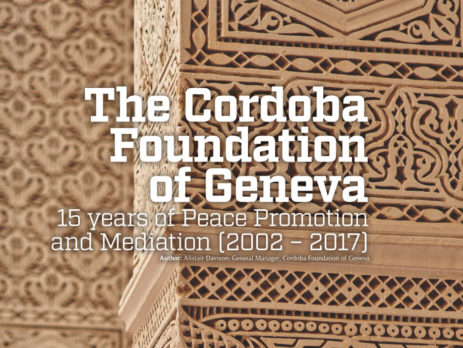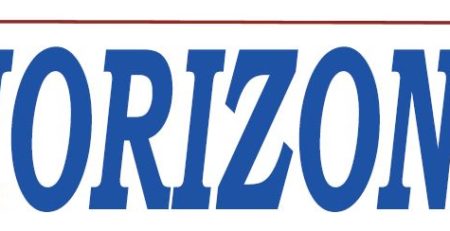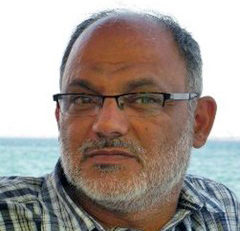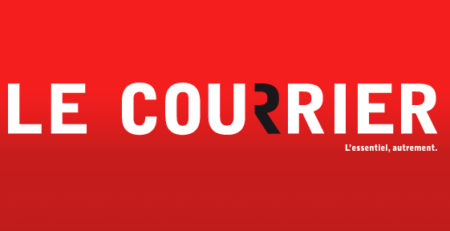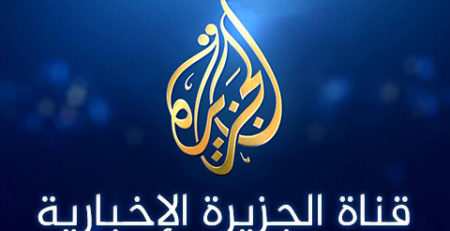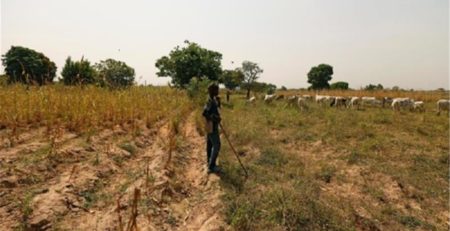The Cordoba Foundation of Geneva, 15 years of Peace Promotion and Mediation (2002 – 2017)
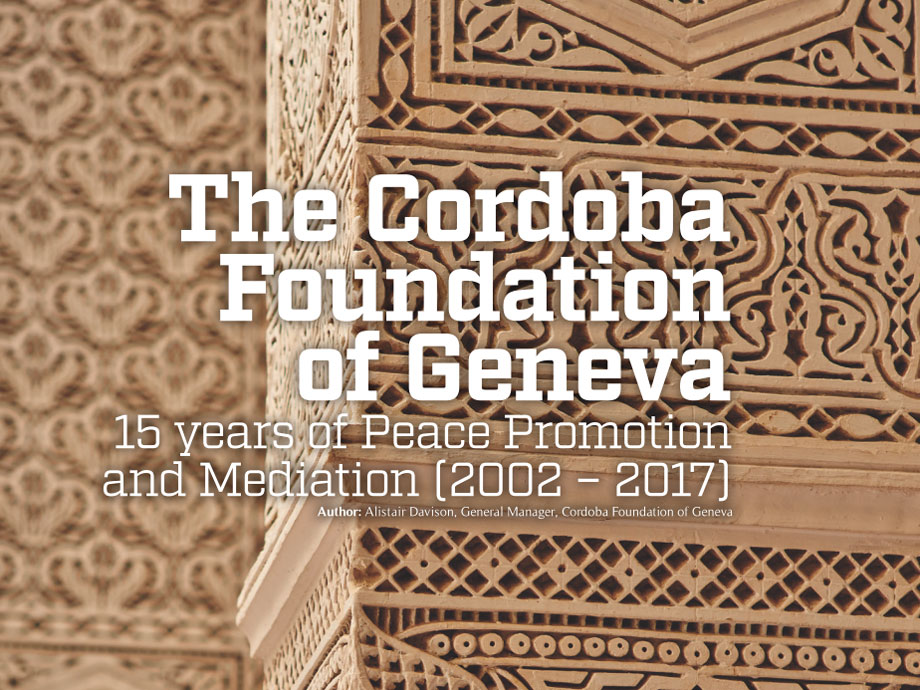
A multitude of leather-bound Arabic tomes rise from floor to ceiling at the Cordoba Foundation of Geneva’s discreet offices at Chemin des Vignes. “It’s probably the most diverse Arabic library in Geneva, says Director Abbas Aroua, “and a tranquil place to resource ourselves for our work in many difficult conflict situations”.
Author: Alistair Davison, General Manager, Cordoba Foundation of Geneva
Published in: www.klvinmag.com
A multitude of leather-bound Arabic tomes rise from floor to ceiling at the Cordoba Foundation of Geneva’s discreet offices at Chemin des Vignes. “It’s probably the most diverse Arabic library in Geneva, says Director Abbas Aroua, “and a tranquil place to resource ourselves for our work in many difficult conflict situations”.
It is from these offices, in walking distance of “Genève Internationale”, that the Cordoba Foundation of Geneva (CFG) carries out its work in peace promotion, mediation and conflict transformation. The library was bequeathed by founding board member Shaikh Mahmoud Bouzouzou, a pioneer of the Algerian nationalist movement and much-respected theologian, Islamologue, journalist and mediator. It is also now a great source of literature and studies on mediation and conflict, interspersed with the works of Simone de Beauvoir, Jean-Paul Sartre and other great European writers and philosophers.
Over the past fifteen years, the CFG has worked to bring together Islamists and secularists across North Africa, Copts and Muslims in Egypt, Salafists and Sufis across the Sahel. It helped mediate between the Danish government and Muslim organisations following the “Cartoons of Mohamed” crisis, and supported the Swiss government in working with Swiss Muslims to defuse tensions following the anti-minaret vote.
The foundation was established in 2002, and its name links Cordoba, the Andalusian city renowned as a medieval center of inter-faith cultural, intellectual and linguistic exchange, with Geneva, center of so much international mediation and humanitarian exchange today. From the outset, its focus has been on countries with Muslim majorities, as well as those where tensions arise over the integration and acceptance of Muslim communities.
Since 2010, the Foundation’s main programs have been carried out in partnership with the Religion, Politics and Conflict Desk of the Swiss Federal Department of Foreign Affairs, with the support of other donors, and focus on various lines of tension: the impact of different world views in North Africa, sectarian tensions in the Middle East, and a variety of ethnic, tribal and religious tensions across the Sahel region. There are also important projects with respected Islamic scholars across these regions to address the issues of extremism and violence through proper interpretations of Islamic texts and jurisprudence.
One of the core principles of the CFG is its independence. This has enabled it to build confidence across the Arab and Muslim world with an impressive network of contacts, who give access to influential local religious and civil society actors marginalised or excluded from peace processes, and who sometimes have difficulty interacting directly with governments as a result of their very different viewpoints. Due to the trust it enjoys with its partners in these regions, the CFG is able to act as a bridge and facilitator. This privileged access would not be possible without the success of its methodology of “diapraxis” which brings together parties who might not naturally speak to one another to work on jointly-implemented projects, in order to build trust and break down prejudices and mutual suspicion. The approach is built on the idea that “you don’t have to have the same reasons for doing something together, as long as the intentions are compatible and you can go in the same direction.”
The focus on the Islamic context is deliberate and well founded, as explained by Lakhdar Ghettas, Senior Program Officer: “Following the devastating wars of the 20th Century, and the desperate situation in which Europe found itself after World War Two, there was a real determination that such wars should never happen again. This gave rise in Europe to the whole science of peace and conflict studies, and the development of tools and techniques for mediation and conflict transformation to ensure that, while conflict is a normal and necessary part of life, violence in conflict can be avoided and must be an absolute last resort. Such a development has not happened in countries with Muslim majorities, and the shortage of suitable tools for dealing with conflict has contributed to the horrendous violence we see today in so many conflicts across the Middle East, North Africa and the Sahel region, areas which are the focus of most of our work.”
The foundation has a small and dedicated team of full-time staff in Geneva and the field, with a variety of backgrounds and experience including conflict studies, political science, journalism, languages and Islamic philosophy, together with a large and talented pool of consultants and researchers throughout the regions where it works. But the most important quality in this work is a passion for peace building in a challenging environment.
Geneva is also part of the identity of the CFG, and for Charlotte Mounier, Program Associate: “Our base in Geneva is definitely an advantage. Although the focus of our work is generally abroad, Switzerland’s non-colonial past, and Geneva’s international reputation as the home of numerous NGOs and international organizations helps with our credibility and the trust people place in us as an honest broker.”
Thanks to the generous support of the Genevan communes of Lancy, Onex and Plan-les-Ouates, the CFG is also connected locally. Their donations have enabled the foundation to carry out work on rising xenophobia in Hungary, training on conflict transformation in Libya and a peace journalism project in Mauritania.
Through its networks, and the regional platforms it runs for each of its major programs, the CFG receives constant requests for assistance, training and mediation. “There is so much that could be done, and we are really hampered by the lack of financial resources available for this sensitive kind of work, at a time of such turmoil. The nature of fundraising is in mutation, and we are looking towards new sources of support”, says Project Officer Sarah Franck, responsible for the recent launch of the foundation’s donations campaign, which can be found on its website: www.cordoue.ch
While “innovation” may be the new mantra at the CFG, the team stays connected with the heritage of the past, and the library is a constant reminder of the richness and diversity of that heritage, “I wish I could claim to have read even a tenth of the marvellous collection of books that surrounds us here at the Foundation” says Abbas Aroua, “but ongoing political developments keep us busy!” Let’s hope that the work of the CFG will lead to a more peaceful world, and allow time for the wisdom in those books to be read and shared among people of different cultures, as it was in medieval Cordoba.
Alistair Davison,
General Manager, Cordoba Foundation of Geneva





